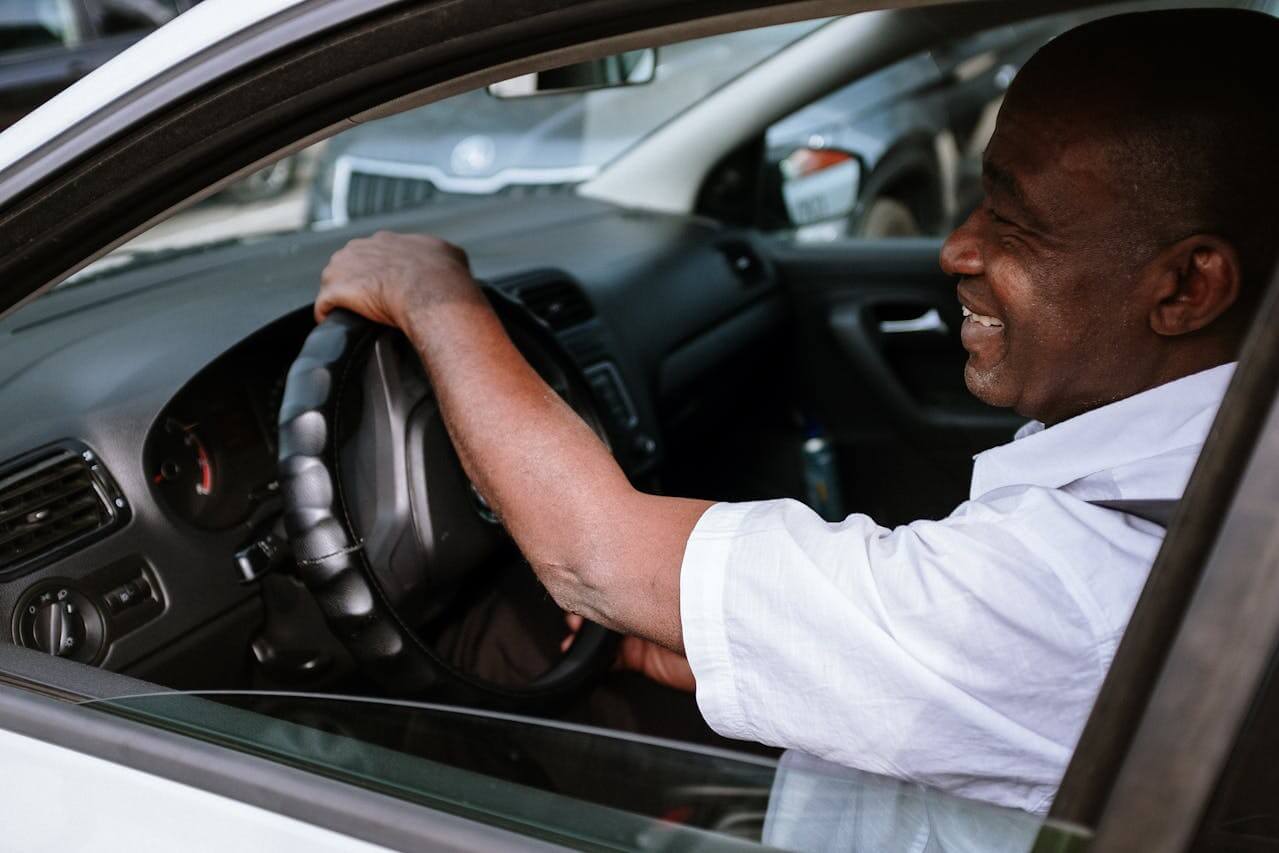What is The Difference Between PCP and HP Car Finance?

In the world of vehicle financing, acronyms like PCP and HP frequently pop up, leaving many wondering about what they mean and how they are different. If you're in the market for a new car and you’re thinking of paying using car finance, understanding the differences between PCP (Personal Contract Purchase) and HP (Hire Purchase) will help make the process a lot easier. Let's explore PCP vs HP financing options to help you make an informed decision on which is best for you.
What does PCP and HP mean?
PCP stands for Personal Contract Purchase, while HP stands for Hire Purchase. Both are financial agreements that many people use for buying cars and other vehicles. And both of them involve splitting the cost of the car into smaller monthly payments, but they work slightly differently from one another.

What is the difference between PCP and HP?
The main difference between PCP vs HP finance is ownership of the vehicle . With HP car finance, you're paying off the full value of the vehicle over the term of the agreement, eventually becoming the outright owner. This means that monthly payments are usually higher with HP finance than they are with PCP finance. PCP car finance involves lower monthly payments as you're only financing a portion of the car's value. At the end of a PCP agreement, you have three options: return the car, pay a final lump sum (often referred to as a balloon payment) if you want to own it, or start a new agreement with a different vehicle.
Which one is better, HP or PCP?
The answer to this question depends entirely on your personal preferences, your financial situation, and what matters most to you when you’re financing a car. If your main goal is to own the car at the end, and if you can afford the monthly payments, HP finance is probably the better option for you. If, however, you don’t really mind whether you own the car or not, and if you think you’d prefer to change cars every few years, then PCP is likely to be the better option. No single option is ‘better’ overall when it comes to HP vs PCP, it’s all down to your individual situation.
What are the negatives of PCP?
While PCP offers lower monthly payments and flexibility, there are some drawbacks to consider. These may include mileage restrictions, wear-and-tear charges upon returning the vehicle, and the fact that you don't own the car outright until making the final balloon payment.
What are the negatives of HP?
Although HP provides automatic ownership at the end of the agreement with no balloon payment to make, the monthly payments on a HP finance agreement tend to be higher compared to PCP. Additionally, if you default on payments, the lender may repossess the vehicle, resulting in loss of ownership and financial implications.
Is It better to own a car or PCP?
Again, there is no outright ‘better’ option for everybody here, it all depends on your circumstances and what matters most to you about car ownership. Buying and owning a car outright provides freedom and means you are not paying off a loan every month. However, PCP offers a faster route to potential ownership if you don’t have the money to buy a car outright just now. It offers lower initial costs, the option to pay monthly amounts that suit your budget, and the opportunity to own the car at the end by paying the balloon payment. If you decide not to own it, you can upgrade to newer models every few years instead, making it preferable for some individuals than owning the car.

Is PCP better than buying outright?
PCP can be advantageous if you’re seeking lower upfront costs and flexibility. However, buying outright means immediate ownership without future payments or restrictions, which may be preferable depending on your financial situation and how much outright car ownership matters to you.
Is PCP worth the money?
PCP can be worth it if you lower monthly payments and driving new vehicles regularly is what matters more to you than car ownership. However, it's important to consider the total cost, including interest and the final balloon payment, if you decide you want to own the car at the end of the agreement. This can sometimes mean you’re paying more for a car than you would if you’d bought it outright, so it all comes down to what matters most to you, and your financial situation.
Can you go from PCP to HP?
Yes, it is possible to change from a PCP to a HP finance agreement, although it will depend on the terms of your specific PCP agreement, and on the policies of your lender. If you decide to go from PCP to HP, and your lender agrees to this, you would typically use the new HP agreement to finance the remaining balance of the car's value, including the balloon payment from your old PCP agreement. Essentially, you're converting the remaining amount owed on the car into a new Hire Purchase agreement, where you'll continue making fixed monthly payments until you've paid off the full value of the vehicle.
Do you own the car after HP finance?
Yes, with HP finance you become the legal owner of the vehicle once you’ve paid off all your monthly payments, plus any final admin fees or transfer of ownership fees. Once these are paid, the car will be officially transferred into your name as the legal owner.
Do you own the car after PCP finance?
Initially, you don't own the car outright with PCP finance. However, you do have the option to own it by paying the final balloon payment at the end of the agreement.
Is HP finance hard to get?
Approval for HP finance (or PCP finance, for that matter) depends on various factors such as your credit history, income, and the value of the vehicle being purchased. Generally it is not hard to get car finance, however if you have a poorer credit score or don’t have enough income in the eyes of the lender, you may struggle more than others. It’s all down to whether or not you meet the lender’s criteria.

Is HP a good idea for a car?
HP can be a suitable option if you prefer outright ownership, predictable payments, and plan to keep the car long term. It provides a clear path to ownership without the need for a large upfront payment.
Why is HP more expensive than PCP?
HP typically involves higher monthly payments than PCP because you're financing the full value of the vehicle, whereas PCP only covers a portion. Additionally, interest rates may differ between the two financing options, contributing to the price difference.
What happens if you can't afford your HP car?
If you find yourself unable to afford the repayments on your HP car finance agreement, you should contact your lender straight away and let them know your situation. They will be able to discuss your options with you, which could include setting up a different repayment plan. It’s essential that you do this, as if you default on (miss) any HP payments, the lender may repossess the vehicle to recover their losses. This can result in the loss of ownership and negative effects on your credit score.
Can I pay off HP finance early?
Yes, most HP agreements allow for early repayment. However, it's essential to check the terms of your agreement, as there may be fees or penalties associated with early repayment.
Does HP affect car insurance?
HP finance doesn't directly impact car insurance requirements, but lenders typically need you to take out comprehensive insurance coverage to protect their investment in the vehicle.
Does HP affect credit score?
Having HP finance itself doesn’t directly impact your credit score, but the way you handle your agreement could do. Making your payments on time (without missing any) can positively impact your creditworthiness, while missed or late payments may damage your score.
Is it worth buying a car at the end of a PCP?
Whether it's worth buying the car at the end of a PCP agreement depends on various factors such as the vehicle's condition, how much it’s worth (market value) by the end of your agreement, and your preferences. You can ask the lender to value the car before you decide to pay the final balloon payment, which could help you evaluate whether it’s worth buying, or whether you’d be better off handing it back and switching to a newer car instead.
Do you keep the car at the end of HP finance?
Yes, with HP finance, you keep the car once all payments, including any ownership transfer fees, have been made. Ownership transfers to you upon completion of the agreement, and you get to keep the car for as long as you want it.
Who owns the car on HP finance?
While you're making payments, the lender technically owns the car. During this time, you are listed as the car’s ‘registered keeper’. Once all payments are made, full ownership transfers to you, and the lender's security interest is removed.
Who owns the car on PCP finance?
Just like on HP finance, the finance company or lender technically owns the car while you’re making your monthly repayments on a PCP finance agreement. Full ownership will only transfer to you if you choose to make the final balloon payment at the end of the term.
Now you know what is the difference between PCP and HP car finance, and you know what each finance type involves, you should hopefully feel comfortable enough to make a choice on which is best for you. Remember, no single option is better overall, it all depends on your financial situation and what matters the most to you in terms of car ownership.